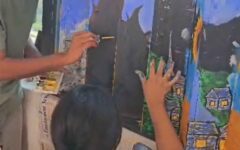Luxury Meets Comfort: Dhruva’s Guide to Elegant Interior Design
January 20, 2021 2024-06-05 0:33Luxury Meets Comfort: Dhruva’s Guide to Elegant Interior Design
When it comes to interior design, achieving the perfect balance between luxury and comfort is the ultimate goal. Welcome to Dhruva’s Guide to Elegant Interior Design, where we delve into the nuances of creating spaces that exude opulence while offering a warm and inviting atmosphere. In this comprehensive guide, we will explore key principles, design elements, and practical tips to transform your home into a luxurious haven of comfort.
Understanding the Essence of Luxury Interior Design
What Defines Luxury in Interior Design?
Luxury interior design is not just about extravagance; it’s about creating an environment that feels exclusive, sophisticated, and exceptionally comfortable. The hallmarks of luxury interiors include high-quality materials, bespoke furnishings, and meticulous attention to detail. It’s about curating a space that tells a story of refinement and taste.
The Role of Comfort in Luxury Interiors
Comfort is an essential component of luxury. A truly luxurious space should not only look good but also feel good. This means incorporating plush textures, ergonomic furniture, and thoughtful layouts that promote relaxation and well-being.
Key Principles of Elegant Interior Design
Balance and Harmony
Achieving balance and harmony in design ensures that every element in the space complements each other. This involves a careful selection of colors, textures, and shapes to create a cohesive look. Symmetry often plays a significant role, but asymmetrical arrangements can also be effective if done thoughtfully.
Quality Over Quantity
In luxury design, less is often more. Focus on acquiring a few high-quality pieces rather than filling the space with numerous mediocre items. Each piece should have a purpose and contribute to the overall aesthetic and functionality of the room.
Personalization
Luxury interiors should reflect the personality and preferences of the homeowner. Customization is key, whether it’s through bespoke furniture, personalized art, or unique decor items that add a personal touch to the space.
Elements of Luxurious Interiors
High-Quality Materials
Natural Stone
Marble, granite, and other natural stones are staples in luxury design. They add a sense of grandeur and timeless elegance to spaces like kitchens and bathrooms.
Rich Fabrics
Silk, velvet, and cashmere are examples of rich fabrics that can elevate the look and feel of a room. These materials are perfect for upholstery, drapery, and accent pieces.
Sophisticated Color Palettes
Neutral Tones
Neutral colors like beige, taupe, and gray create a sophisticated backdrop that allows other design elements to shine. They also contribute to a serene and calming atmosphere.
Bold Accents
Incorporating bold accents like deep blues, emerald greens, or rich burgundies can add depth and interest to a room. These colors work well for statement pieces such as a velvet sofa or a feature wall.
Statement Lighting
Lighting plays a crucial role in luxury interior design. Chandeliers, pendant lights, and sconces not only illuminate the space but also serve as decorative elements. Opt for fixtures made from high-quality materials like crystal, brass, or hand-blown glass.
Creating Luxurious Spaces: Room by Room
Living Room
The Focal Point
Every luxurious living room should have a focal point, whether it’s a grand fireplace, an oversized piece of art, or a stunning view. This element anchors the space and draws the eye.
Comfortable Seating
Invest in high-quality, comfortable seating. A plush sofa with down-filled cushions, complemented by elegant armchairs, creates an inviting atmosphere. Upholstery in luxurious fabrics like velvet or leather adds to the opulence.
Bedroom
Sumptuous Bedding
Luxury in the bedroom begins with sumptuous bedding. Opt for high-thread-count sheets, a plush duvet, and an array of pillows in various sizes. Layering textures such as silk, cashmere, and linen adds to the comfort and visual appeal.
Thoughtful Lighting
Incorporate multiple light sources to create a warm and relaxing ambiance. Bedside lamps, wall sconces, and a statement chandelier can all contribute to a layered lighting scheme.
Kitchen
High-End Appliances
A luxurious kitchen features high-end appliances that are both functional and aesthetically pleasing. Brands like Sub-Zero, Wolf, and Miele offer products that combine cutting-edge technology with sleek design.
Elegant Countertops and Cabinetry
Natural stone countertops and custom cabinetry are key elements in a luxury kitchen. Consider materials like marble, quartzite, or soapstone for a sophisticated look. Custom cabinetry ensures that every inch of space is utilized efficiently and beautifully.
Bathroom
Spa-Like Features
Transform your bathroom into a spa-like retreat with features such as a freestanding bathtub, a walk-in shower with multiple jets, and heated floors. Incorporate natural materials like stone and wood to enhance the sense of luxury.
High-Quality Fixtures
Invest in high-quality fixtures such as a rainfall showerhead, a vessel sink, and a well-crafted vanity. Finishes in polished nickel, brass, or matte black can add a touch of elegance.
Incorporating Art and Accessories
Curating Art
Art is a powerful way to personalize and elevate your space. Curate a collection that reflects your taste and complements the overall design. Consider large-scale pieces for dramatic impact or a gallery wall for a more eclectic look.
Choosing Accessories
Accessories should enhance the space without overwhelming it. Choose pieces that are meaningful and of high quality. Think of items like decorative vases, sculptural objects, and luxurious textiles.
The Importance of Space Planning
Functional Layouts
A luxurious space must also be functional. Thoughtful space planning ensures that each room serves its intended purpose while maintaining a sense of flow and cohesion. Consider traffic patterns, the placement of furniture, and the relationship between different areas of the home.
Creating Zones
In larger spaces, creating distinct zones can enhance both functionality and comfort. For example, in an open-plan living area, you might have a seating zone for relaxation, a dining zone for entertaining, and a workspace for productivity.
Sustainability in Luxury Design
Eco-Friendly Materials
Sustainable luxury is an emerging trend in interior design. Opt for eco-friendly materials such as reclaimed wood, recycled metal, and organic fabrics. These materials not only reduce environmental impact but also add a unique character to your space.
Energy Efficiency
Incorporating energy-efficient solutions, such as LED lighting, smart thermostats, and energy-efficient appliances, contributes to sustainability while maintaining a luxurious feel. These elements can help reduce your carbon footprint and lower utility bills.
Tips for Implementing Luxury Design on a Budget
Prioritize Key Pieces
Invest in a few key pieces that will have the most impact, such as a statement sofa, a high-quality bed, or a stunning chandelier. These items can elevate the entire space and serve as focal points.
DIY Projects
Consider DIY projects for smaller decor items or simple updates. Painting an accent wall, reupholstering a chair, or creating your own artwork can add a personal touch without breaking the bank.
Mix High and Low
Mixing high-end pieces with more affordable finds can create a balanced and stylish look. For example, pair a designer coffee table with budget-friendly accessories or a luxurious rug with a more affordable sofa.
Conclusion
Creating a luxurious and comfortable interior is all about balance, quality, and personal expression. By focusing on high-quality materials, thoughtful space planning, and personalized touches, you can transform your home into an elegant retreat. Remember, luxury is not just about opulence—it’s about creating a space that feels both sophisticated and welcoming.
Frequently Asked Questions (FAQs)
1. What defines luxury in interior design?
Answer: Luxury in interior design is characterized by the use of high-quality materials, bespoke furnishings, and meticulous attention to detail. It focuses on creating an environment that feels exclusive, sophisticated, and exceptionally comfortable. Elements such as natural stone, rich fabrics, sophisticated color palettes, and statement lighting contribute to a luxurious interior.
2. How can I make my home feel luxurious on a budget?
Answer: To achieve a luxurious feel on a budget, prioritize key pieces that have the most impact, such as a statement sofa or a stunning chandelier. Consider DIY projects for smaller decor items, mix high-end pieces with more affordable finds, and focus on creating a cohesive and balanced look with high-quality finishes and accessories.
3. What are the key principles of elegant interior design?
Answer: The key principles of elegant interior design include balance and harmony, quality over quantity, and personalization. Ensuring that every element complements each other, focusing on a few high-quality pieces, and incorporating personalized touches that reflect the homeowner’s personality are essential to achieving an elegant design.
4. How can I incorporate comfort into a luxurious interior?
Answer: Comfort in a luxurious interior can be achieved by using plush textures, ergonomic furniture, and thoughtful layouts that promote relaxation. Invest in comfortable seating, sumptuous bedding, and multiple light sources to create a warm and inviting atmosphere.
5. What are some must-have elements for a luxurious living room?
Answer: A luxurious living room should have a focal point, such as a grand fireplace or a piece of art, and comfortable seating made from high-quality materials like velvet or leather. Incorporate statement lighting, rich fabrics, and sophisticated color palettes to enhance the opulence of the space.
For more such informative blogs, please visit Dhruva Fashion Technology.






